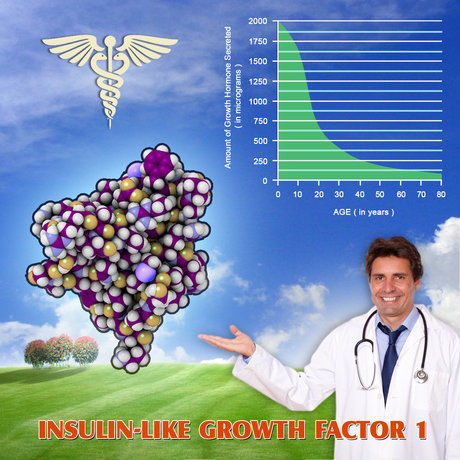Introduction
Hypogonadism, characterized by the body's inability to produce sufficient testosterone, has been a focal point of research due to its implications on men's health. Recent studies utilizing Dual-Energy X-Ray Absorptiometry (DXA) have shed light on how this condition influences body fat distribution among American males. This article delves into the findings of such studies, offering a comprehensive understanding of the relationship between hypogonadism and body composition.
Understanding Hypogonadism
Hypogonadism is a medical condition where the gonads (testes in males) produce little or no sex hormones. In men, this primarily affects testosterone levels, leading to a myriad of health issues. Symptoms can range from decreased libido and erectile dysfunction to increased body fat and decreased muscle mass. The condition can be congenital or acquired, with the latter often resulting from injury, infection, or other medical conditions.
The Role of Dual-Energy X-Ray Absorptiometry
Dual-Energy X-Ray Absorptiometry, commonly known as DXA, is a sophisticated imaging technique used to measure bone density and body composition. Its precision in distinguishing between fat, lean, and bone tissue makes it an invaluable tool in studying body fat distribution, especially in conditions like hypogonadism. Recent studies have employed DXA to investigate how hypogonadism alters fat distribution in American males, providing critical insights into the condition's metabolic impact.
Findings on Body Fat Distribution
Research has consistently shown that men with hypogonadism exhibit a higher percentage of body fat compared to their healthy counterparts. DXA scans have revealed that this increased fat accumulation is not uniform across the body. Specifically, men with hypogonadism tend to have a higher concentration of visceral fat, which is the fat stored within the abdominal cavity and around internal organs. This type of fat is particularly concerning as it is associated with an increased risk of metabolic syndrome, cardiovascular diseases, and type 2 diabetes.
Moreover, the studies indicate that hypogonadism leads to a shift in fat distribution from subcutaneous to visceral areas. This shift is significant because subcutaneous fat, located just beneath the skin, is considered less harmful than visceral fat. The increase in visceral fat observed in men with hypogonadism underscores the need for targeted interventions to manage this condition effectively.
Implications for Health and Treatment
The findings from DXA studies have profound implications for the health and treatment of American males with hypogonadism. Understanding the specific changes in body fat distribution can guide healthcare providers in developing more effective treatment plans. For instance, testosterone replacement therapy (TRT) has been shown to reduce visceral fat and improve overall body composition in men with hypogonadism. However, TRT must be administered carefully, considering its potential side effects and the need for long-term monitoring.
Additionally, lifestyle interventions such as diet and exercise are crucial in managing the metabolic changes associated with hypogonadism. A balanced diet and regular physical activity can help mitigate the increase in visceral fat and improve overall health outcomes. Tailored exercise programs that focus on building muscle mass and reducing fat can be particularly beneficial for men with this condition.
Conclusion
The use of Dual-Energy X-Ray Absorptiometry has provided valuable insights into the impact of hypogonadism on body fat distribution in American males. The condition's association with increased visceral fat highlights the importance of comprehensive management strategies that include both medical and lifestyle interventions. As research continues to evolve, it is imperative that healthcare providers stay informed about the latest findings to offer the best possible care to men affected by hypogonadism.
Contact Us For A Fast And Professional Response

- 0001) Unveiling the Link Between Hypogonadism and Mental Health: A Comprehensive Guide for American Males [Last Updated On: February 3rd, 2026] [Originally Added On: February 19th, 2025]
- 0002) Unveiling the Best Practices in Medical Monitoring for Hypogonadism in American Males [Last Updated On: February 9th, 2026] [Originally Added On: February 20th, 2025]
- 0003) Hypogonadism and Sleep Disorders: A Bidirectional Link in American Males [Last Updated On: March 4th, 2025] [Originally Added On: March 4th, 2025]
- 0004) Unveiling the Link Between Hypogonadism and Muscle Health in American Males: A Medical Perspective [Last Updated On: March 16th, 2025] [Originally Added On: March 16th, 2025]
- 0005) Navigating Hypogonadism in Men with Autoimmune Diseases: A Comprehensive Guide [Last Updated On: March 16th, 2025] [Originally Added On: March 16th, 2025]
- 0006) Exploring the Link Between Hypogonadism and Impaired Wound Healing in American Males [Last Updated On: March 16th, 2025] [Originally Added On: March 16th, 2025]
- 0007) Exploring the Interplay Between Hypogonadism and Parathyroid Health in American Males [Last Updated On: March 16th, 2025] [Originally Added On: March 16th, 2025]
- 0008) Hypogonadism in American Males: Diagnosis, Testosterone Therapy, and Individualized Treatment Considerations [Last Updated On: March 17th, 2025] [Originally Added On: March 17th, 2025]
- 0009) Exploring Hypogonadism and Chronic Pain: Diagnosis, Treatment, and Holistic Management [Last Updated On: March 17th, 2025] [Originally Added On: March 17th, 2025]
- 0010) Hypogonadism in American Males: Diagnosis, Treatment, and Education Essentials for Physicians [Last Updated On: March 18th, 2025] [Originally Added On: March 18th, 2025]
- 0011) Hypogonadism and Prostate Health: Understanding, Managing, and Preventing Complications [Last Updated On: March 19th, 2025] [Originally Added On: March 19th, 2025]
- 0012) Hypogonadism and Thyroid Dysfunction: Exploring the Correlation in American Males [Last Updated On: March 19th, 2025] [Originally Added On: March 19th, 2025]
- 0013) Hypogonadism and Autoimmune Disorders: Impact, Management, and Future Research in American Males [Last Updated On: March 20th, 2025] [Originally Added On: March 20th, 2025]
- 0014) Hypogonadism and Liver Health: A Comprehensive Guide for American Males [Last Updated On: March 21st, 2025] [Originally Added On: March 21st, 2025]
- 0015) Hypogonadism's Impact on American Men: Diagnosis, Treatment, and Quality of Life Enhancement [Last Updated On: March 21st, 2025] [Originally Added On: March 21st, 2025]
- 0016) Medical Imaging's Crucial Role in Diagnosing Hypogonadism in American Males [Last Updated On: March 21st, 2025] [Originally Added On: March 21st, 2025]
- 0017) Exercise as a Complementary Approach to Managing Hypogonadism in American Males [Last Updated On: March 21st, 2025] [Originally Added On: March 21st, 2025]
- 0018) Alternative Medicine Approaches for Managing Hypogonadism in American Males: A Review [Last Updated On: March 22nd, 2025] [Originally Added On: March 22nd, 2025]
- 0019) Managing Hypogonadism and Kidney Disease: Strategies for American Males [Last Updated On: March 22nd, 2025] [Originally Added On: March 22nd, 2025]
- 0020) Ethical Challenges in Hypogonadism Treatment: Balancing Benefits, Risks, and Societal Pressures [Last Updated On: March 23rd, 2025] [Originally Added On: March 23rd, 2025]
- 0021) Hypogonadism's Impact on Bone Health: Diagnosis, Treatments, and Emerging Therapies [Last Updated On: March 23rd, 2025] [Originally Added On: March 23rd, 2025]
- 0022) Hypogonadism and Hair Loss: Understanding Links and Exploring Treatments [Last Updated On: March 23rd, 2025] [Originally Added On: March 23rd, 2025]
- 0023) Hypogonadism's Impact on Respiratory Health in American Males: A Comprehensive Overview [Last Updated On: March 24th, 2025] [Originally Added On: March 24th, 2025]
- 0024) Advanced Medical Technologies Transform Hypogonadism Diagnosis in American Males [Last Updated On: March 24th, 2025] [Originally Added On: March 24th, 2025]
- 0025) Hypogonadism in American Males: Screening, Diagnosis, and Management Strategies [Last Updated On: March 24th, 2025] [Originally Added On: March 24th, 2025]
- 0026) Hypogonadism and Anemia: Diagnosis, Management, and Enhancing Men's Health Quality [Last Updated On: March 25th, 2025] [Originally Added On: March 25th, 2025]
- 0027) Hypogonadism's Neurological Risks: Cognitive Decline, Mood Disorders, and Neurodegenerative Diseases in American Males [Last Updated On: March 25th, 2025] [Originally Added On: March 25th, 2025]
- 0028) Monitoring Hypogonadism in Long-Term Care: Strategies and Technology for Enhanced Quality of Life [Last Updated On: March 25th, 2025] [Originally Added On: March 25th, 2025]
- 0029) Understanding Hypogonadism: Symptoms, Causes, and Comprehensive Management Strategies [Last Updated On: March 25th, 2025] [Originally Added On: March 25th, 2025]
- 0030) Hypogonadism's Impact on Skin Health and Testosterone Replacement Therapy Benefits [Last Updated On: March 25th, 2025] [Originally Added On: March 25th, 2025]
- 0031) Hypogonadism and Cancer Risk: Understanding the Link and Managing Health [Last Updated On: March 25th, 2025] [Originally Added On: March 25th, 2025]
- 0032) Hypogonadism's Impact on Muscle Health in American Males: Diagnosis, Treatment, and Research [Last Updated On: March 25th, 2025] [Originally Added On: March 25th, 2025]
- 0033) Hypogonadism and Allergies: Exploring Hormonal Links and Treatment Implications in American Males [Last Updated On: March 25th, 2025] [Originally Added On: March 25th, 2025]
- 0034) Hypogonadism and Hearing Loss: A Critical Connection in American Males [Last Updated On: March 25th, 2025] [Originally Added On: March 25th, 2025]
- 0035) Hypogonadism's Impact on Immune Function in American Males: Research and Clinical Insights [Last Updated On: March 26th, 2025] [Originally Added On: March 26th, 2025]
- 0036) Hypogonadism's Impact on Joint Health and Benefits of Testosterone Therapy [Last Updated On: March 26th, 2025] [Originally Added On: March 26th, 2025]
- 0037) Hypogonadism's Impact on Eye Health: Dry Eye, Cataracts, Glaucoma, and TRT Benefits [Last Updated On: March 26th, 2025] [Originally Added On: March 26th, 2025]
- 0038) Hypogonadism's Psychological Impact and the Crucial Role of Tailored Counseling [Last Updated On: March 26th, 2025] [Originally Added On: March 26th, 2025]
- 0039) Hypogonadism in American Males: Trends, Treatments, and Future Research Directions [Last Updated On: March 26th, 2025] [Originally Added On: March 26th, 2025]
- 0040) Hypogonadism and Headaches: Symptoms, Diagnosis, and Holistic Treatment Strategies [Last Updated On: March 26th, 2025] [Originally Added On: March 26th, 2025]
- 0041) Revolutionizing Hypogonadism Treatment: Innovations and Hope for American Men [Last Updated On: March 26th, 2025] [Originally Added On: March 26th, 2025]
- 0042) Hypogonadism's Impact on Gastrointestinal Health in American Males: A Comprehensive Analysis [Last Updated On: March 26th, 2025] [Originally Added On: March 26th, 2025]
- 0043) Medical Nutrition Therapy Enhances Hypogonadism Management in American Males [Last Updated On: March 27th, 2025] [Originally Added On: March 27th, 2025]
- 0044) Managing Hypogonadism: Roles of Endocrinologists, Urologists, and Multidisciplinary Teams [Last Updated On: March 27th, 2025] [Originally Added On: March 27th, 2025]
- 0045) Hypogonadism's Impact on Dental Health: Symptoms, Management, and Holistic Care [Last Updated On: March 27th, 2025] [Originally Added On: March 27th, 2025]
- 0046) Preventing Hypogonadism: Strategies for At-Risk American Men [Last Updated On: March 27th, 2025] [Originally Added On: March 27th, 2025]
- 0047) Hypogonadism in Transgender Men: Diagnosis, Treatment, and Personalized Care [Last Updated On: March 27th, 2025] [Originally Added On: March 27th, 2025]
- 0048) Medical Social Workers: Vital Support for American Males with Hypogonadism [Last Updated On: March 27th, 2025] [Originally Added On: March 27th, 2025]
- 0049) Hypogonadism's Emotional Impact on American Men: A Holistic Treatment Approach [Last Updated On: March 27th, 2025] [Originally Added On: March 27th, 2025]
- 0050) Hypogonadism's Impact on Blood Pressure: Causes, Links, and Management Strategies [Last Updated On: March 27th, 2025] [Originally Added On: March 27th, 2025]
- 0051) Hypogonadism and Vision: Symptoms, Diagnosis, and Management Strategies [Last Updated On: March 27th, 2025] [Originally Added On: March 27th, 2025]
- 0052) Hypogonadism's Impact on Cognitive Function in American Males: A Review and Outlook [Last Updated On: March 28th, 2025] [Originally Added On: March 28th, 2025]
- 0053) Managing Hypogonadism: Diagnosis, Treatment, and Lifestyle Strategies for American Males [Last Updated On: March 28th, 2025] [Originally Added On: March 28th, 2025]
- 0054) Medical Rehabilitation for Hypogonadism: Enhancing Recovery in American Males [Last Updated On: March 28th, 2025] [Originally Added On: March 28th, 2025]
- 0055) Hypogonadism and Cholesterol: Implications for Cardiovascular Health in American Males [Last Updated On: March 28th, 2025] [Originally Added On: March 28th, 2025]
- 0056) Hypogonadism's Impact on Balance: A Crucial Health Concern for American Males [Last Updated On: March 29th, 2025] [Originally Added On: March 29th, 2025]
- 0057) Exploring the Link Between Hypogonadism and GERD in American Males: Diagnosis and Treatment [Last Updated On: March 30th, 2025] [Originally Added On: March 30th, 2025]
- 0058) Hypogonadism's Impact on Urinary Health: Diagnosis, Management, and Prevention Strategies [Last Updated On: March 30th, 2025] [Originally Added On: March 30th, 2025]
- 0059) Hypogonadism's Link to Peripheral Neuropathy: Insights and Treatment Options for Men [Last Updated On: April 1st, 2025] [Originally Added On: April 1st, 2025]
- 0060) Managing Hypogonadism-Related Fatigue: Therapies and Lifestyle Solutions for American Males [Last Updated On: April 1st, 2025] [Originally Added On: April 1st, 2025]
- 0061) Hypogonadism Linked to Accelerated Skin Aging: Insights and Interventions for American Males [Last Updated On: April 1st, 2025] [Originally Added On: April 1st, 2025]
- 0062) Strategies to Enhance Adherence to Hypogonadism Treatment in American Males [Last Updated On: April 4th, 2025] [Originally Added On: April 4th, 2025]
- 0063) Hypogonadism's Impact on Sinus Health in American Males: A Comprehensive Overview [Last Updated On: April 5th, 2025] [Originally Added On: April 5th, 2025]
- 0064) Hypogonadism and Gallbladder Health: Exploring the Link in American Males [Last Updated On: April 7th, 2025] [Originally Added On: April 7th, 2025]
- 0065) Hypogonadism's Impact on Nail Health: Diagnosis, Treatment, and Lifestyle Management [Last Updated On: April 7th, 2025] [Originally Added On: April 7th, 2025]
- 0066) Medical Devices Revolutionize Hypogonadism Management in American Males [Last Updated On: April 8th, 2025] [Originally Added On: April 8th, 2025]
- 0067) Understanding Hypogonadism: Symptoms, Causes, and Treatment for American Males [Last Updated On: April 8th, 2025] [Originally Added On: April 8th, 2025]
- 0068) Hypogonadism Linked to Lymphatic Dysfunction in American Males: Study Insights [Last Updated On: April 10th, 2025] [Originally Added On: April 10th, 2025]
- 0069) Hypogonadism and Spleen Health: Exploring Links in American Males [Last Updated On: April 10th, 2025] [Originally Added On: April 10th, 2025]
- 0070) Hypogonadism's Impact on Ear Health: Symptoms, Diagnosis, and Management Strategies [Last Updated On: April 11th, 2025] [Originally Added On: April 11th, 2025]
- 0071) Understanding Hypogonadism: Nursing Roles in Diagnosis, Treatment, and Patient Care [Last Updated On: April 12th, 2025] [Originally Added On: April 12th, 2025]
- 0072) Managing Hypogonadism in American Males with Chronic Illnesses: Strategies and Insights [Last Updated On: April 12th, 2025] [Originally Added On: April 12th, 2025]
- 0073) Hypogonadism's Impact on Wound Healing in American Males: Causes and Management Strategies [Last Updated On: April 13th, 2025] [Originally Added On: April 13th, 2025]
- 0074) Medical Counseling: Essential for Managing Hypogonadism in American Males [Last Updated On: April 13th, 2025] [Originally Added On: April 13th, 2025]
- 0075) Hypogonadism and Parathyroid Health: Impacts on American Male Bone Health and Well-being [Last Updated On: April 15th, 2025] [Originally Added On: April 15th, 2025]
- 0076) Hypogonadism's Impact on Thymus Health: Diagnosis, Management, and Future Research [Last Updated On: April 16th, 2025] [Originally Added On: April 16th, 2025]
- 0077) Hypogonadism and Pancreatic Health: Diagnosis and Integrated Care Strategies for American Males [Last Updated On: April 16th, 2025] [Originally Added On: April 16th, 2025]
- 0078) Hypogonadism's Impact on Endocrine Balance in American Males: Symptoms, Effects, and Treatment [Last Updated On: April 17th, 2025] [Originally Added On: April 17th, 2025]
- 0079) Hypogonadism's Impact on Adrenal Function: Insights for American Males [Last Updated On: April 17th, 2025] [Originally Added On: April 17th, 2025]
- 0080) Hypogonadism and Autoimmune Diseases: Challenges and Management Strategies in American Males [Last Updated On: April 18th, 2025] [Originally Added On: April 18th, 2025]
















